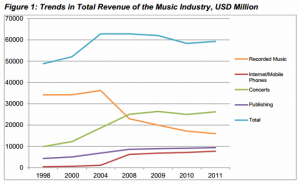As a loyal Blackberry user myself, I definitely experienced firsthand how quickly Blackberry users declined. It seemed like each day I was losing a handful of BBM contacts to their new iPhones or Androids. Recently, when BBM was made available on other phones, I was excited to see my contacts begin to return.
With Blackberry no longer selling their company, this is a new direction they have taken and it seems to have been successful. After making BBM available to competing brands of cell phones, over 20 millions new users joined the network, bringing the total number of users over 80 million. But one has to wonder if the excitement will last. And it is a valid question.
Although user numbers seems promising, I have to wonder what it will really do for the company. First of all, BBM does not bring any monetary benefit to Blackberry. Also, thinking of Porter’s Five Forces, there is a strong threat of substitutes for BBM such as imessage, Snapchat, or simply texting. Even the exciting BBM video is rivalled by iPhone’s “facetime”. As one of my friends simply put it, “Why would you BBM someone who has an iPhone?”.
http://www.theglobeandmail.com/report-on-business/blackberry-boasts-of-smashing-success-with-20-million-new-bbm-users/article15134557/



